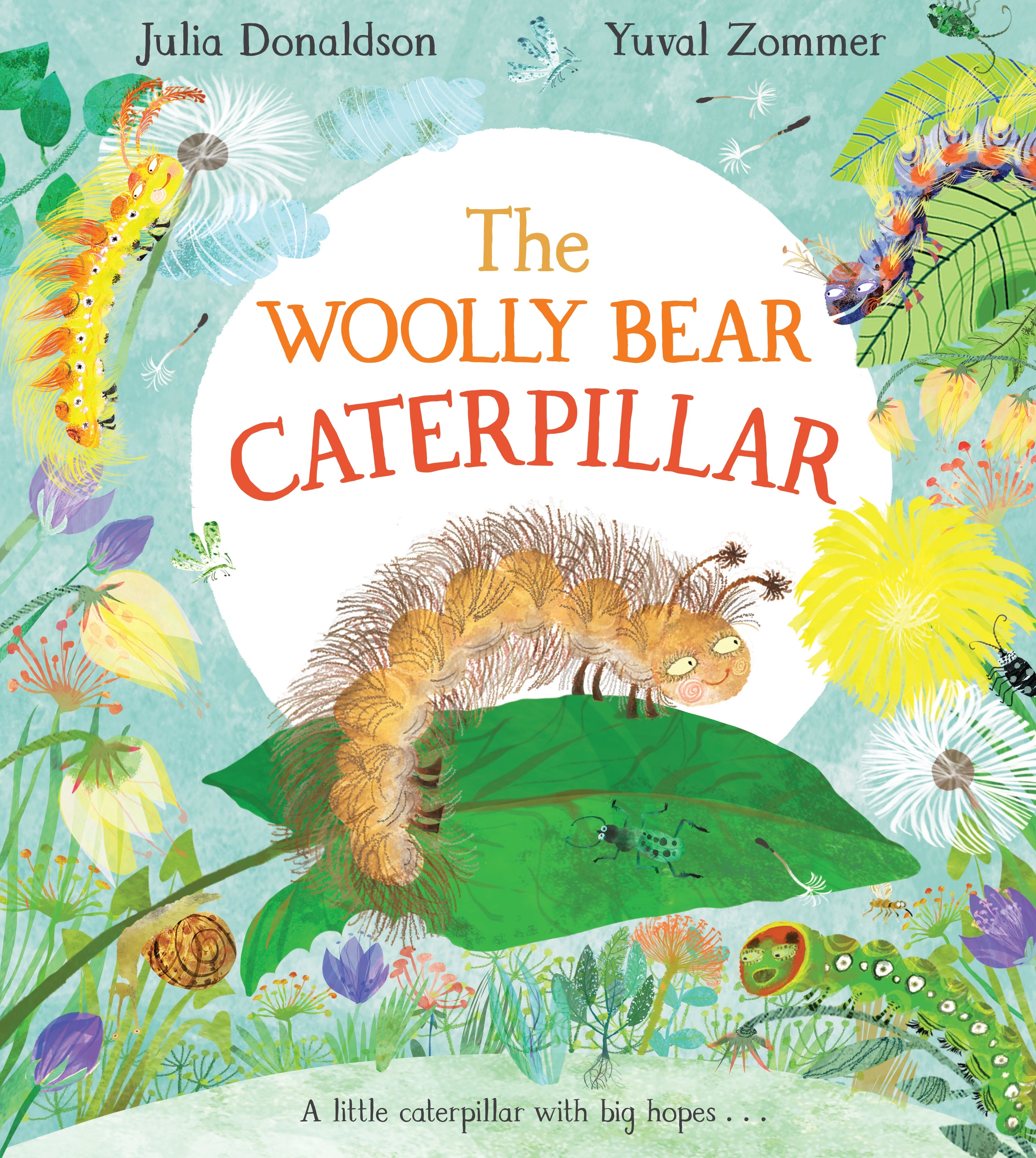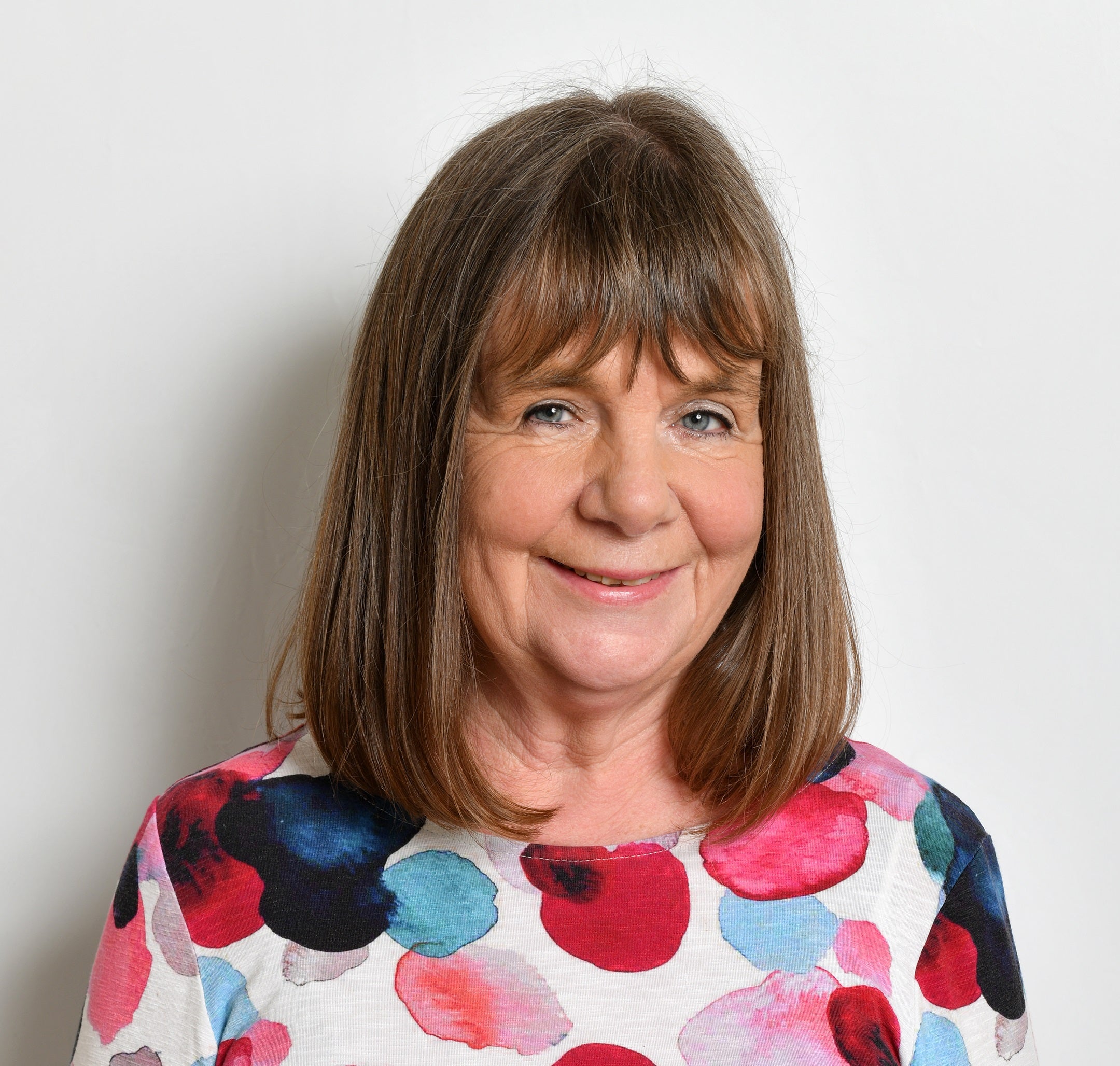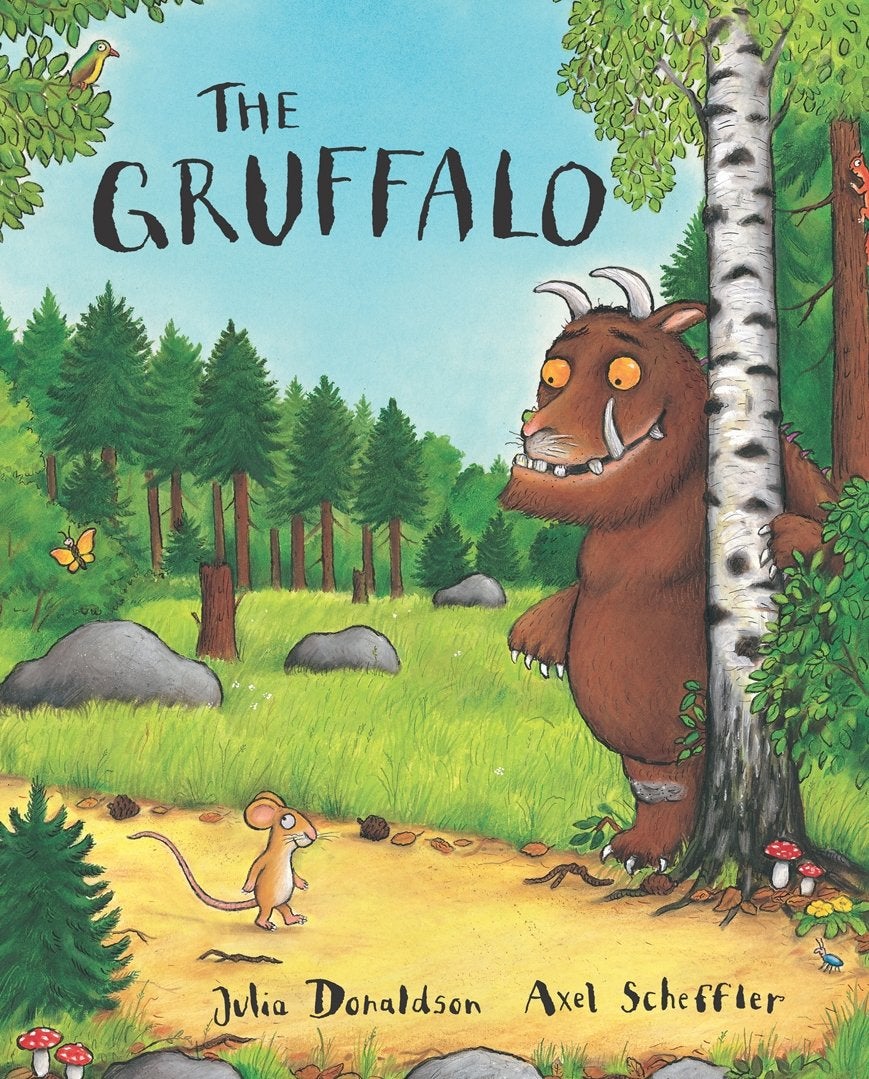The Gruffalo author Julia Donaldson: ‘I worry about the psychological effect of masks on children’
The author of ‘The Gruffalo’ talks to Charlotte Cripps about children’s mental health during the pandemic, her new book ‘The Woolly Bear Caterpillar’, and unexpected stardom as a kids’ author


Your support helps us to tell the story
From reproductive rights to climate change to Big Tech, The Independent is on the ground when the story is developing. Whether it's investigating the financials of Elon Musk's pro-Trump PAC or producing our latest documentary, 'The A Word', which shines a light on the American women fighting for reproductive rights, we know how important it is to parse out the facts from the messaging.
At such a critical moment in US history, we need reporters on the ground. Your donation allows us to keep sending journalists to speak to both sides of the story.
The Independent is trusted by Americans across the entire political spectrum. And unlike many other quality news outlets, we choose not to lock Americans out of our reporting and analysis with paywalls. We believe quality journalism should be available to everyone, paid for by those who can afford it.
Your support makes all the difference.Julia Donaldson sells a book roughly every 11 seconds. The Gruffalo; Stick Man; Room on the Broom; The Snail and the Whale; Zog and the Flying Doctors – if your home has ever had young children in it, chances are you have a few of those on the shelves. Her hit book The Gruffalo – about a mouse who scares off predators in a wood – has sold over 13 million copies alone and has been translated into more than 100 languages. She has an estimated net worth of £85m. The key to her success? “Good rhymes, good story, great pictures, bit scary,” says Donaldson, concentrating hard to get it in the right order; it’s an eight-word answer she has had memorised for a while now.
Donaldson is the queen of picture books with good reason: children never tire of her visually sumptuous, poetic and funny stories. I’m a witness to their appeal. To my own kids, who love her lift-the-flap books, nothing is quite as exciting at bedtime as the grand finale of Postman Bear; they open the big brown cardboard door, and mole, frog and squirrel are standing there with presents for Bear’s party.
But the biggest-selling author of the past decade – in any genre – didn’t expect such major success when she wrote her second picture book, The Gruffalo, in 1999. “I very much doubted that it would get accepted, let alone feted,” says the 72-year-old, talking via Zoom from her home in a small West Sussex town, where she now owns the post office. “It wasn’t very typical of what picture books were like in those days.” Books like Guess How Much I Love You were prevalent in the Nineties, and they were “more reassuring to parents, I think, than to children”, says Donaldson. “There weren’t a lot of rhyming books – or adventure story books – then.”
What set The Gruffalo apart – aside from its lyrical quality – was how it took children out of their comfort zone. The story was funny, but it was fearsome, too. In it, a mouse craftily fends off a fox, an owl and a snake by telling them he’s meeting a gruffalo. He thinks there’s no such thing – until he meets a real one. “But who is this creature with terrible claws / And terrible teeth in his terrible jaws? / He has knobbly knees, and turned-out toes / And a poisonous wart at the end of his nose.”
This wasn’t just another warm family story with a lovey-dovey message – this was an adventure story that rhymed. The mouse’s journey is an odyssey in the most ancient of traditions.
Donaldson’s first hint of success came when The Gruffalo was lined up to be translated into 12 languages before it was even published. When the book came out, she was on her way to Venice. “We were in the airport and I said to Malcolm, ‘Oh let’s find a paper just in case there is a review.’ And there was a huge picture of The Gruffalo saying it was ‘a modern classic’. And I just floated about. I was on cloud nine.”
Since then, Donaldson has made it her life’s mission to connect with children – so it’s not surprising she’s so concerned about the pandemic’s effect on them. She worries that it’s harder for them to read facial expressions with masks on, and that many schools banned singing in class – “which seems unnatural”.
“I found the masks very worrying – the sort of psychological effect on some children at school,” says Donaldson. “And I think the sooner we can be mask-free, the better.”
Dressed in a red flowery dress, with shoulder-length hair, Donaldson has an almost childlike openness to her. “It’s very hard to say this with all the social media stuff,” she continues. “Certain views, you just get branded as a Trump supporter or something. But I don’t feel there has been enough weighing up of the risks and benefits. I’m not saying that the lockdown or closing schools is wrong, but I think we probably need to wait before having a big, huge inquiry. We need to see what the effects have been before we say, ‘Yes, we were right to do it this way,’ or ‘We should have done it another way’. We are still too in it.”

Her latest book, The Woolly Bear Caterpillar, which is out next week, is a modern take on the ugly duckling story. The tale of “boastful caterpillars” who “lord it over a humble dull one” was inspired by an event she attended for the West Sussex Wildlife Trust. “There was a moth trap there – it’s not a cruel thing,” she says. “These moths were inside a great big basket and then they took the muslin off and we could see all these moths that were attracted to the torchlight. A lot of them looked quite dull. And so I asked the organiser: ‘Are there any very, very dull-looking caterpillars that turn into very glamorous moths and visa versa?’” Indeed there were, and she had her story. “Of course, the moths get their comeuppance, because she turns into a beautiful moth.”
She’s also got a cameo role in the new CBBC adaptation of her Princess Mirror-Belle books, a series that was inspired by the eldest of her three sons, Hamish. As a child, Hamish had adventures in a wardrobe – “a complicated sort of fantasy” with imaginary friends. He took his own life in 2003 at the age of 25, after suffering from a schizoaffective disorder; it’s not something she really wants to talk about any more.
The TV series is due out in November. Suitably, Donaldson has landed the role as an author of children’s books. And she’s got an appearance at Barnes Literary Festival next weekend. But right now, she’s in a flap about a breakfast TV appearance. “How does it look?” she keeps asking me about her study, which I can see in the background on Zoom. I think she’s talking about the messy-ish room – but she actually means the lighting. The yellow parrot-patterned blinds and a tablecloth in the study look familiar: they’re exact replicas of the designs on the boy’s armchair in her Axel Scheffler-illustrated book Charlie Cook’s Favourite Book (2005).
Donaldson and Scheffler have been a winning combo ever since 1991. At that time she was a children’s TV-show songwriter. She had sent a tape of her ditties to BBC children’s TV, and had ended up writing songs for Play Away, Play School and Watch with Mother. One day, she was contacted by a publisher out of the blue. They wanted her to turn a song she had written for Seventies kids’ show Playboard into her first book. A Squash and a Squeeze was published in 1993, when Donaldson was 44. Little did she realise how lucrative it would be to turn her songwriting skills into storytelling.
It was her father, James, always known as Jerry – a psychiatric social worker who also pioneered genetic studies involving identical twins – who inspired her love of rhymes. He gave her The Book of a Thousand Poems when she was five, and she was instantly smitten. She grew up in a three-storey house near Hampstead Heath, along with her younger sister Mary, her aunt and uncle on the first floor, and her grandmother on the second. It was a musical household: Jerry played the cello in amateur string quartets, and Donaldson and her mother Elizabeth were members of the Hampstead Music Club. When Donaldson’s book-writing career took off, it was as if all her past influences had aligned. In other words, it felt like fate.

Although Donaldson complains that local children wave at her through her low windows – “It can be intrusive” – there’s certainly a homely vibe in her study. Her husband, Malcolm – a retired consultant paediatrician – keeps wandering into the room wearing a Gruffalo tour T-shirt; he’s about to do a Zoom piano lesson.
The pair will have been married for 50 years next year. She met the then medical student in 1969 at Bristol University, where she studied drama and French. Soon they were busking together across Europe. He played guitar and Donaldson sang.
Now, as a superstar kids’ author, she gets asked her opinions regularly – which baffles her. “I suppose if you choose to express an opinion that’s one thing,” she says. “But there’s no reason why somebody who is successful in one field should be an authority on this, that and the other. I’m not really an authority on anything other than picture-book writing.”
I ask her what she makes of celebrities who write children’s books – such as Meghan Markle, whose book The Bench is out this month. “However much of a fuss there is, unless it’s good, it won’t work,” she says. “In the end, you can have as big a PR campaign as you want and if the public doesn’t really take to the book, it will all die down quite soon.” But it depends who the celebrity is. “David Walliams, he was already a writer because he’d written all the sketches for Little Britain. So he was a writer – he wasn’t just a celebrity.”
Donaldson, who had to pause her popular live shows during the pandemic, is disarmingly eccentric. She put on a series of live-streamed events with Malcolm over lockdown, performing her picture books dressed up in full costume. She says the pandemic increased “the divide between children from high-achieving, motivated families – whose parents might help them with their home learning – and those without a book in the house”.
But it’s nature that concerns her more than literacy. “I think it’s one thing to say, ‘We want to save the planet.’ I feel that you need to know the planet. Not everything about it, but what’s on your doorstep at least. Be able to touch the flowers and know their names.”

What about inclusivity – is that important to her? “You want books to appeal to children of all ethnic backgrounds and walks of life,” says Donaldson. She has to wear two hearing aids after she was diagnosed with “cookie-bite” hearing loss in her thirties – which leaves a hole in the mid-range of the audible spectrum – and it has influenced her writing. She’s written two books with deaf themes: Freddie and the Fairy and What the Jackdaw Saw. “And, you know, I have to say, it’s so lovely to see pictures of children with hearing aids.”
But the choices are often “more in the hands” of the illustrators, she says. “I didn’t mind what the girl looked like in [2019’s] The Girl, the Bear and the Magic Shoes,” says Donaldson. “She’s a girl. But Lydia Monks [the illustrator] has chosen to make her black.” She continues: “That’s fine. I mean, I’m not consciously writing a book with a message, and I don’t think anyone wants there particularly to be lots of message-type books.”
But when Donaldson wrote the story Tabby McTat (2009), about a busking cat, she had no idea she would receive fan mail from same-sex female couples. “The cat gets taken in by Prunella and Pat – it doesn’t really matter to me who he got taken in by because it had to rhyme with ‘cat’ actually. And as far as I thought about it, it was Pat as in Patrick,” she says. “Axel just thought, ‘Pat – Patricia.’ So he just drew Prunella and Patricia – so it’s two women living together. They could be lovers, they could be sisters, they could be friends or whatever. But actually, I was quite touched that I’ve had several comments and letters from same-sex female couples saying, ‘Oh thank you so much. We so appreciate this book showing people like us.’”
She smiles warmly: “So I do think it is lovely for people to see themselves – especially children.”
‘The Woolly Bear Caterpillar’ by Julia Donaldson and illustrated by Yuval Zommer is published by Macmillan Children’s Books on 24 June. Donaldson will be appearing at Barnes Children’s Literature Festival on Saturday 26 June. For tickets: barneskidslitfest.org



Join our commenting forum
Join thought-provoking conversations, follow other Independent readers and see their replies
Comments